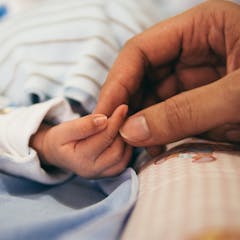
Articles on Epidemiology
Displaying 141 - 160 of 208 articles

From China and South Korea to Italy and the US, different countries are taking very different approaches to COVID-19 – with varying degrees of success.

There is no evidence that the coronavirus has evolved into a deadlier strain. It is almost certainly less lethal than initially reported, but that might mean there are more cases than we realised.

Canadians have a reputation for compassion; in the current COVID-19 pandemic, this means helping each other by staying away.

The risks to individuals vary hugely with age.

Best-case estimates suggest 40 million American adults may come down with COVID-19. But an epidemiologist explains why now is not the time to just give up.

Machine learning technology was first to sound the alarm about the new coronavirus. Its success illustrates how AI is boosting epidemiology.

The current outbreak of COVID-19 underscores the need to study urban growth to understand the spread and control of future epidemics.

Epidemiologists want to quickly identify any emerging disease’s potential to spread far and wide. Dependent on a number of factors, this R0 number helps them figure that out and plan accordingly.

The novel coronavirus spreading outward from Wuhan, China, will get an assist from a subset of infected people who transmit it to many others.

Starting Feb. 6, 2020, California farmers will be barred from using chlorpyrifos on their crops. The Trump administration says more study is needed, but other states are also moving ahead.

Scientists who were appointed to advise the EPA on air pollution kept meeting independently after the agency dissolved their panel. They say current regulations aren’t strict enough.

A new study has found a link between being born by caesarean section and having a greater chance of being diagnosed with autism or ADHD. But there’s no evidence caesarean sections cause them.

Applied Epidemiological Modelling has enormous potential to improve how decisions are made about public health in African countries.

Social status and location affected Dutch Jews’ chances of survival.

Scientists identified the general pattern of measles infections as a country moves toward eliminating the disease. This roadmap can help public health workers most efficiently fight and end measles.

The 2018 flu season was mild, while 2017 was a particularly bad year. It’s impossible to predict what the 2019 flu season has in store, but we’ve seen more cases so far this year than usual.

In January, measles returned to the Pacific Northwest, while Ebola resurged in the Congo. It would take a lot more research for scientists to be able to stop threats like these in their tracks.

What contributes most to being at high risk of diabetes – diet, genes or something else? Big research questions need robust research approaches, so let’s break it down.

Thousands of people are suing Monsanto, claiming that its Roundup herbicide gave them cancer. A California judge has reduced the first damage award but let the verdict against Monsanto stand.

Polio can be circulating through a community long before anyone is paralyzed. Monitoring sewage for the virus lets public health officials short-circuit this ‘silent transmission.’
